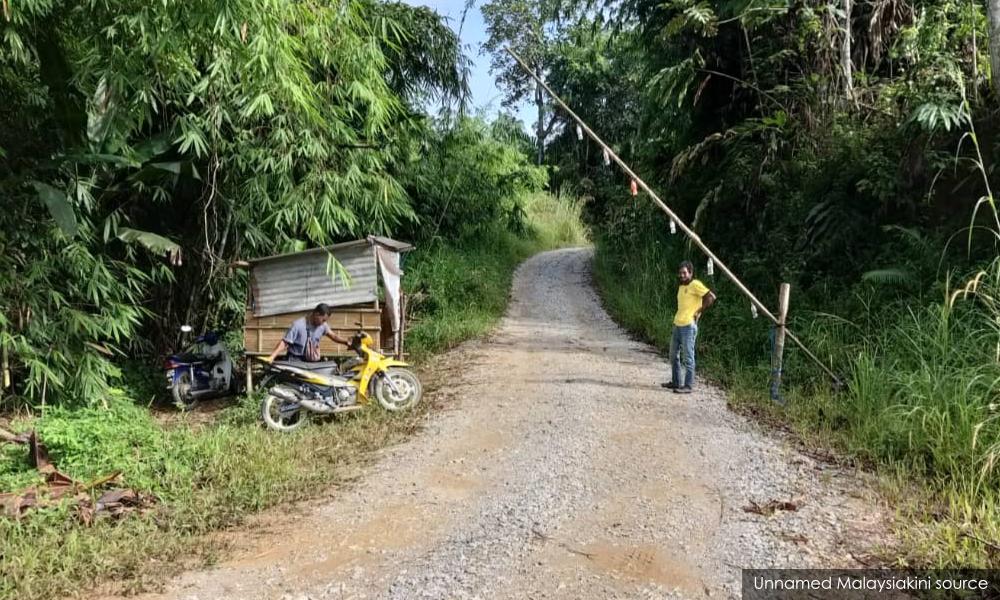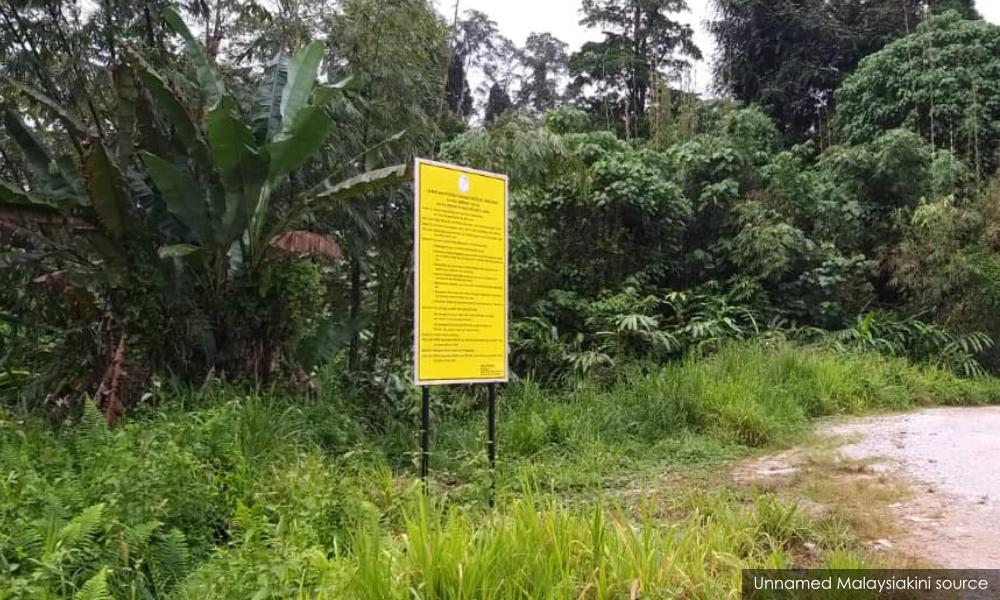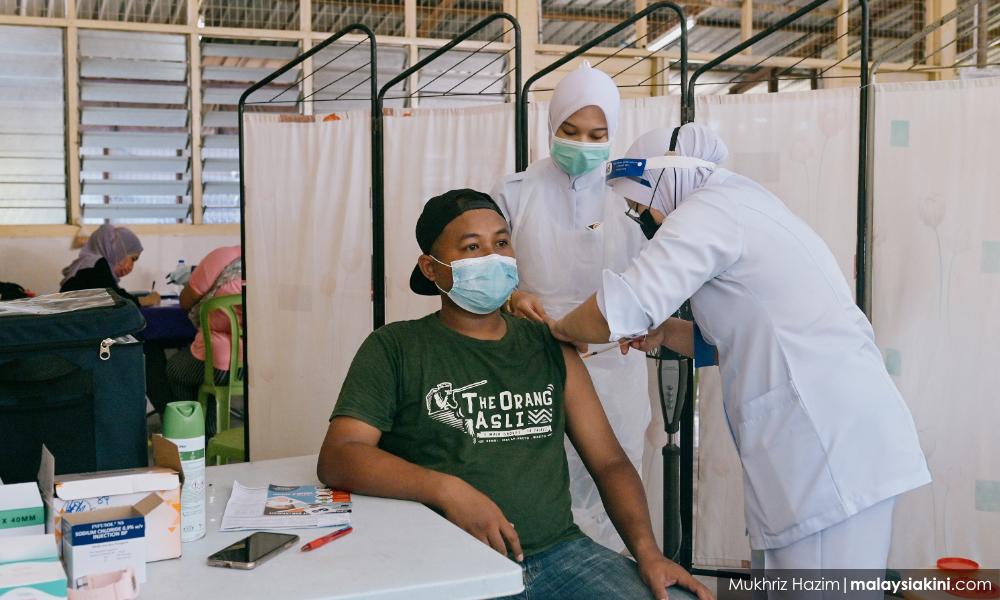Unvaccinated Orang Asli fearful of outsiders trespassing into their villages
A concerned Orang Asli activist is claiming that around 4,000 Orang Asli villagers in Pos Lenjang and Pos Titom in Pahang are at risk due to an influx of outsiders entering their bordered villages, despite the current MCO.
A Pos Lenjang resident told Malaysiakini that two roadblocks have been put in place to keep outsiders at bay, but it remains a mystery as to why outsiders, such as petty traders and durian wholesalers are still able to enter their villages.
To make matters worse, it is understood that residents in the two Orang Asli villages there are not vaccinated.
"Around five people guard the outside roadblock that was set up by the Pahang Forestry Department, and two people guard the roadblock on the inside that was set up by the villagers themselves," the activist told Malaysiakini.
Yet, despite the safeguards, he saw an outsider in the village grounds recently. When approached, the outsider claimed that he obtained a permit to enter the area from the Forestry Department.
“Why are entry permits issued when Covid-19 cases are increasing rapidly among the Orang Asli community?” the activist asked.

Pos Lenjang and Pos Titom are located about 50km from Ringlet, Cameron Highlands, and 70km from Kuala Lipis in Pahang.
The Orang Asli communities there are largely Semai, who form one of the largest of the 18 Orang Asli groups in Peninsular Malaysia.
The Pos Lenjang resident added that some of the outsiders entering the area hail from Sungai Koyan, despite Felda Sungai Koyan 1 and 2 being EMCO areas until Aug 20.
A senior officer from the Department of Orang Asli Development (Jakoa) in Pahang confirmed that no one is rightfully allowed into the Orang Asli villages throughout the MCO period, in order to prevent the spread of the Covid-19 virus to the residents.
“That is why a lot of villages have enforced borders for their own protection,” the officer said.
While the Covid-19 virus gravely impacts anyone who is infected with it, Orang Asli communities are especially disadvantaged in those circumstances — especially the residents of Pos Lenjang and Pos Titom.
Malaysiakini understands that all 4,000 residents have yet to receive their vaccine, which is not an uncommon phenomenon among the Orang Asli communities.
As of July 17, only 15,000 out of the 210,000 Orang Asli in Peninsular Malaysia have been vaccinated.
At 7.1 percent, that is significantly lower than the current national average of 40 percent of the overall population of the country, who have received at least one dose of the vaccine as of July 30.

While efforts have been made to ramp up the vaccinations for the Orang Asli, a lack of awareness and trust in the vaccinations, as well as the technological divide faced by them, have put the community far behind the overall population.
This also poses the question as to whether sufficient resources and protections are available to the Orang Asli in the event coronavirus outbreaks occur in their communities.
The Pos Lenjang activist also claimed that the operations behind the designated perimeters are decided by only a small group of villagers.
“The salaries of the guards on the inside perimeter are paid by the villagers, including petty traders.
“However, a select few outsiders are also given permission to cross the perimeter on the condition that they pay a certain sum,” the activist said.
He said a resident lodged a police report regarding the issue, but noted that there were still traders lingering at the border the following day.
“The residents will have to bear the risks of getting infected if these irresponsible practices continue," he added.
Malaysiakini is attempting to reach out to Pahang State Forestry Department for further comments on this matter

✍ Credit given to the original owner of this post : ☕ Malaysians Must Know the TRUTH
🌐 Hit This Link To Find Out More On Their Articles...🏄🏻♀️ Enjoy Surfing!




















Post a Comment